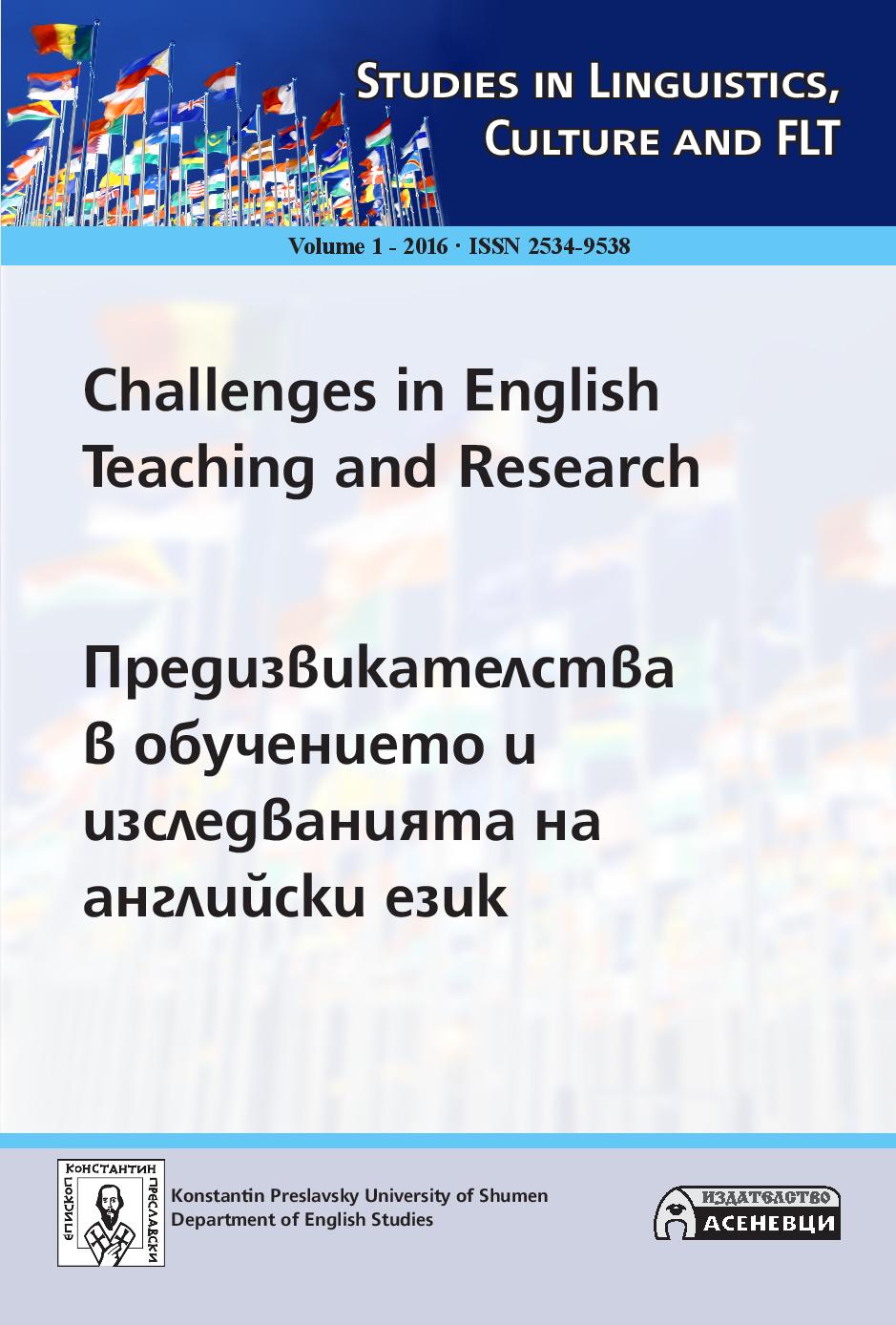The Cognitive Approach As A Challenge In Foreign Language Teaching
The Cognitive Approach As A Challenge In Foreign Language Teaching
Author(s): Miroslava TsvetkovaSubject(s): Foreign languages learning, Applied Linguistics, Cognitive linguistics
Published by: Шуменски университет »Епископ Константин Преславски«
Keywords: language acquisition and learning;FLT (foreign language teaching); cognitive approach; taxonomy of constructions;
Summary/Abstract: The cognitive approach in foreign language teaching attracts young learners’ attention to the topic, enhances and facilitates the comprehension of grammar and language, increases students’ motivation, as well as helps students to memorize new vocabulary and structures. The aim of the article is to persuade teachers that the cognitive approach applied in the lesson provokes a change in the dynamics of the language classroom and serves as a motivational tool for students. An author’s cognitive model is an example for the easy comprehension and production of the difficult English present progressive construction by Bulgarian young learners.The model is discussed within the generativist framework and the usage-based theories as the pre-linguistic conditions take an important part in it. The taxonomy of constructions, which is also part of the model, focuses on the relationship between the English present progressive construction and the constructions preceding it.
Journal: Studies in Linguistics, Culture, and FLT
- Issue Year: 1/2016
- Issue No: 1
- Page Range: 125-135
- Page Count: 11
- Language: English

